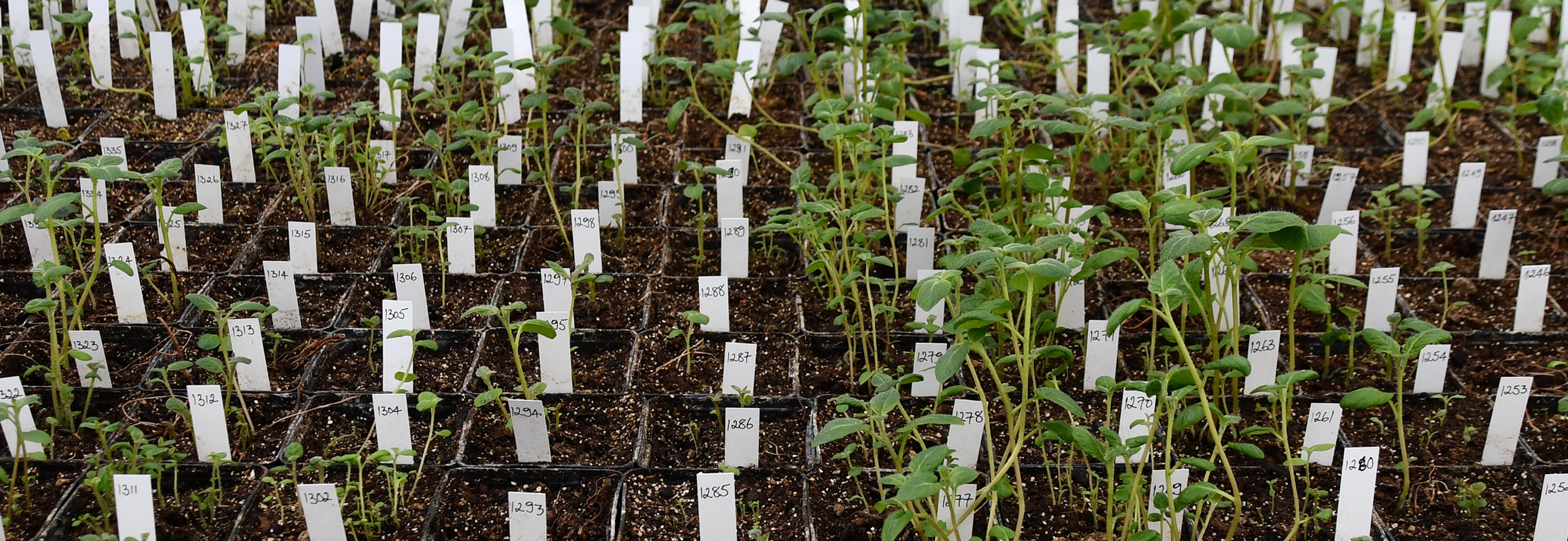Plants provide the greatest natural resource for sustainable human development. As well as providing food and feed, plants are used for the production of various raw materials and of renewable energy.
About 12,000 years ago, humans began to domesticate plants: They selected particularly advantageous plants according to their phenotype and replanted their seeds. Over thousands of years, the occurrence of random mutations and recombination evolved these wild plants into our present-day crop plants.
Plant breeding is a never-ending process; even the modern high-performance varieties of our crops are constantly being improved. It is a very time-consuming process, it takes up to twelve years before a breeding line is developed and approved as a new variety after a cross and several selection steps. Consequently, breeding programs address long-term goals.
Given the steady growth of the world's population, climate change and the continuing loss of arable land, the importance of plant breeding is enormous, since it must develop answers to all these global challenges in the form of adapted plant varieties for the agriculture of the future.
The main objectives of modern breeding programs therefore cover a wide range: from strengthening resistance to abiotic and biotic stress factors, to increasing yields and yield stability, improving quality traits and optimizing resource efficiency. Plant breeding also aims to keep pace with customers' changing health and taste preferences.
In close cooperation with various plant breeding companies, the department "Functional and Applied Genomics" conducts extensive research and development activities on the production of new and high-yielding crops by classical and modern breeding methods. The main focus lies on the development and application of breeding-accompanying and accelerating methods such as tilling and molecular markers. In the laboratory, researchers also use innovative genome editing technologies to analyze gene function. The knowledge gained is incorporated into breeding processes and thus plays its part in accelerating the development of new varieties.
 Fraunhofer Institute for Molecular Biology and Applied Ecology IME
Fraunhofer Institute for Molecular Biology and Applied Ecology IME